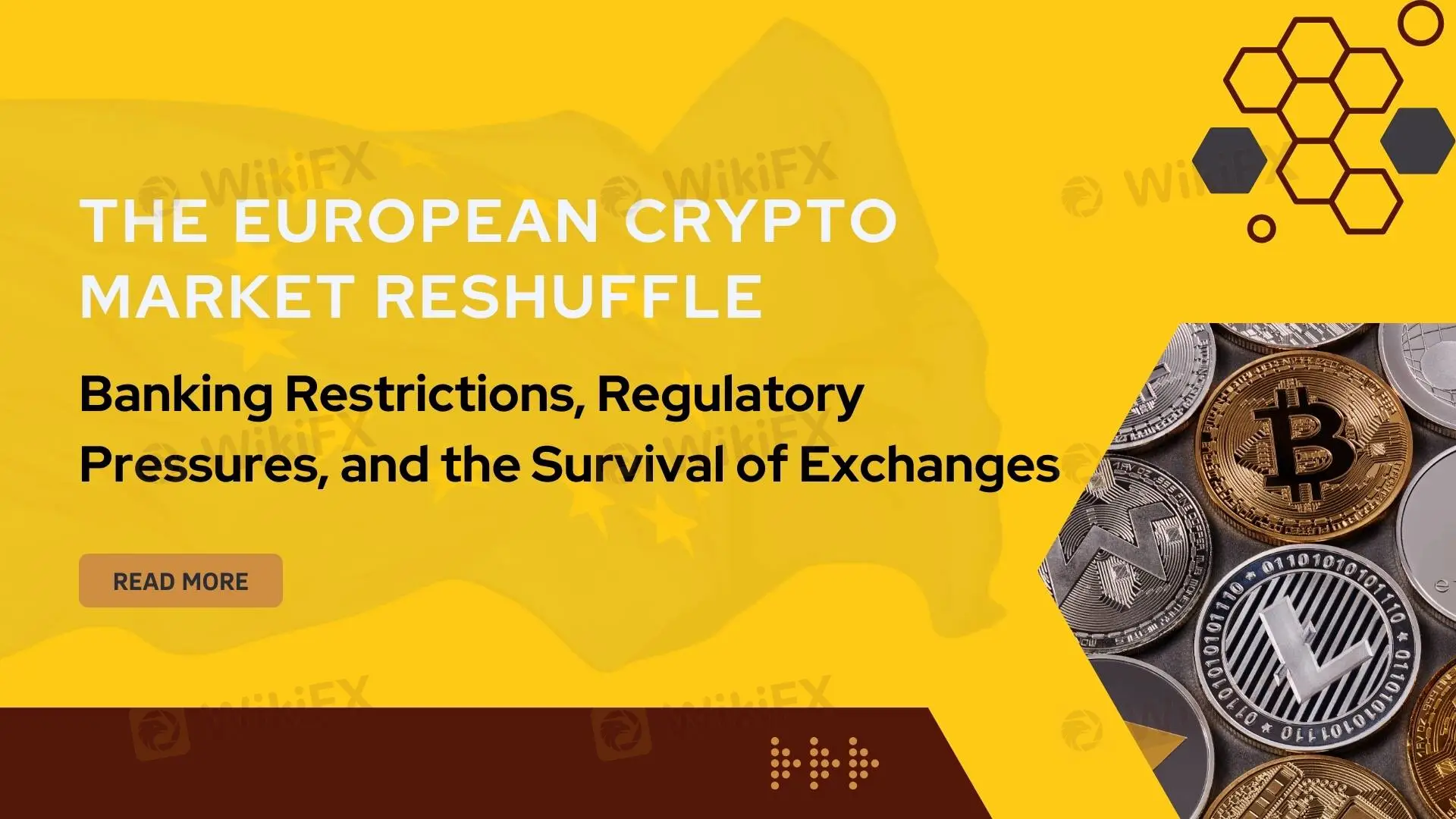European Crypto Market Shakeup: Banking Limits, Regulatory Pressures, and Exchange Survival
Abstract:Portugal’s BiG bank blocks fiat transfers to crypto platforms. European crypto platforms face mounting challenges amid regulatory changes.

One of Portugal‘s leading banks, Investimentos Globais (BiG), recently announced it will block customers from transferring fiat currencies to cryptocurrency platforms. In its statement, BiG explained that this decision aligns with regulatory guidelines issued by the European Central Bank (ECB), the European Banking Authority (EBA), and the Portuguese Central Bank regarding the risks associated with digital assets. The policy also aims to ensure compliance with the country’s Anti-Money Laundering (AML) and Countering the Financing of Terrorism (CFT) laws.
This decision has garnered significant attention, not only because BiG is a key financial institution in Portugal managing €7 billion in assets but also due to its implications for the crypto industry. While other banks, such as Caixa Geral de Depósitos, still permit fiat transfers to crypto platforms, BiGs policy reflects the increasing regulatory pressure on the digital asset sector.
Attitudes of European Governments, Banks, and Exchanges
1.Government Regulatory Upgrades
In recent years, European governments and regulators have adopted a stricter stance on digital assets. The introduction of MiCAR (Markets in Crypto-Assets Regulation) established a unified regulatory framework for the European crypto market, aimed at enhancing investor protection, combating money laundering, and promoting market transparency. This regulation raises the compliance bar for Crypto Asset Service Providers (CASPs) and mandates strict monitoring of funds related to digital assets by banks.
2.Banks Risk Mitigation
For banks, cryptocurrency‘s volatility and its potential association with risks like money laundering and illicit financing are significant reasons to restrict transactions. BiG’s policy likely reflects compliance pressures and concerns about regulatory penalties. In contrast, banks such as Caixa Geral de Depósitos have yet to adopt similar measures, highlighting the differing stances among European banks on crypto-related activities.
3.Exchanges Responses
Crypto exchanges responses to regulation vary depending on their size and market strategy. Larger exchanges, such as Coinbase and Kraken, tend to embrace compliance, viewing new regulations as an opportunity to expand market share. In contrast, smaller or non-compliant exchanges face survival challenges, with some forced to exit the market.
Crypto Platforms Reacting to European Regulations
The evolving regulatory environment in Europe has prompted many exchanges to adapt their strategies to comply with MiCAR requirements:
- Binance: Announced its exit from several European markets, including the Netherlands and Austria, partly due to failing to secure local regulatory approval.
- Bybit: Plans to cease services for French users in early 2025, citing the high cost of regulatory compliance.
- OKX: Suspended certain stablecoin pairs, such as USDT, in the European Economic Area (EEA) to comply with upcoming MiCAR mandates.
- Coinbase: Limited services for stablecoins that do not meet MiCAR requirements and ended its USDC rewards program in the EEA.
These actions indicate that, while the European market holds significant potential, its complex regulatory environment is prompting some platforms to reassess their strategies in the region.
Read more

Coinbase Urges US Lawmakers to Establish Clear Crypto Regulations
Coinbase calls for clear US crypto regulations to foster innovation, protect consumers, and ensure transparency in the digital asset industry.

Binance.US Resumes USD Deposits and Withdrawals After 19 Months
Binance.US resumes USD deposits and withdrawals via ACH transfers, marking a major milestone for the crypto exchange after regulatory challenges.

Robinhood’s $200 Million Gamble: Can It Conquer Singapore’s Crypto Scene?
Robinhood is expanding its global footprint, with Singapore emerging as its next strategic hub in Asia. The fintech company, known for its commission-free trading platform, is preparing to introduce crypto products in the region upon completing its $200 million acquisition of Bitstamp.

Will SOLANA Survive the Meme Coin Collapse?
After reaching an all-time high of $261 in January, Solana (SOL) has seen its value decline, driven largely by the cooling of the meme coin frenzy that had fuelled its rapid ascent.
WikiFX Broker
Latest News
eToro Adds ADX Stocks to Platform for Global Investors
Why Do You Keep Blowing Accounts or Making Losses?
B2BROKER Launches PrimeXM XCore Support for Brokers
Germany's Election: Immigration, Economy & Political Tensions Take Centre Stage
WikiFX Review: Is IVY Markets Reliable?
Checkout FCA Warning List of 21 FEB 2025
Google Bitcoin Integration: A Game-Changer or Risky Move?
IG 2025 Most Comprehensive Review
It is Not True Love | Tips on Avoiding Romance Scams
XTB Secures Chilean License, Expands Latin America Footprint
Rate Calc

